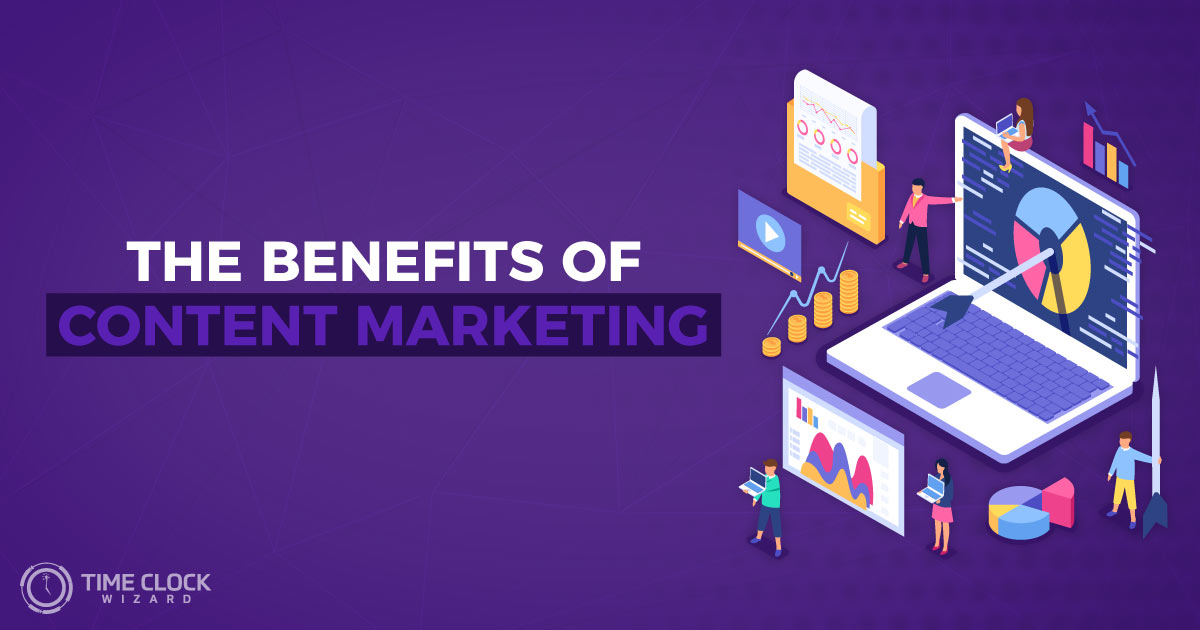
When someone mentions “content marketing,” articles, blog posts, and even social media posts come to mind. However, content marketing goes well beyond that.
Content marketing focuses on the reason people create content, the target audience, and how people can offer them benefits they will not get elsewhere. Content marketing is a comprehensive digital marketing strategy that employs the power of content to build an audience, create a relationship, attract attention, boost engagement, reduce costs, and increase the customer base.
Alternatively, the content strategy focuses more on the art of creating and managing valuable content. Unlike the last two, a content plan is more calculated. It highlights the details of how to plan to implement a strategy and which team member will be responsible. It is necessary to have a solid content marketing strategy before creating a content plan.
Consider digital content strategy as a game plan that utilizes the power of content. This means the approach should cover essential topic areas, the material to be created, sharing method, and call to action.
Why Is a Digital Content Strategy Important?
Content marketing strategy is as important as having proper documentation. Having a well thought out strategy will make content marketing more effective and increase the effectiveness of social media channels. In turn, this will optimize results from spending on content marketing.
Components of a Good Content Marketing Strategy
Consider the digital content strategy as a definite identification of the customer’s needs and an in-depth plan of how content will help meet those needs.
Although there are no standard outlines for creating a content marketing strategy because they are formulated for a specific business, there are five crucial areas your strategy must cover.
1. The business goals for implementing content marketing: this includes the goals to have for content process, the value proposition of content, and information about the business model. It should also include potential drawbacks and opportunities that one may encounter during implementation of a plan.
2. Business propositions for adopting content marketing: highlighting content creation purposes, potential risks, and anticipated successes will help obtain a backing for strategy – and authorization to experiment and make errors before identifying the strategy that is suitable for the business.
3. An audience’s identity and content outline: mention the target audience for the content, what they need, and their expected content engagement routine. Also, outline the content delivery process for different stages of the buyer’s journey towards drawing them closer to their goal.
4. A channel plan: this should highlight all the platforms intended to use for publication, the requirements, procedures, and objectives for each one, and planning to streamline them into a synergistic brand conversation.
5. A brand story: sort content marketing based on the messages or information you want to pass, the uniqueness of words, and the results that would likely come from sharing the information with the audience.
Should Content Marketing Strategy Be Shared with Other Departments in the Company?
Whether the departments are directly involved in the content marketing process or not, it is beneficial to allow people in an organization to access your content marketing strategy.
In large organizations, it could keep siloed teams updated on project details, reduce extraneous efforts, give everyone direction towards meeting similar content goals. This practice can be beneficial for small or new businesses, content teams, and companies outsourcing all or part of their content creation and distribution strategy.
Specific stakeholders in the company only require executive summaries of strategy. The reports submitted depend on the effect content marketing strategy has on their roles, operations, and goals.
The question one should ask is how the concept of content marketing can help him or her gain the interest of an organization. What are people attracted to? This will act as a guide when deciding which aspects of strategy to share with the teams.
Does Content Marketing Generate Results?
Yes. It is not necessary to break the bank. Reports have shown that most consumers prefer to read about a business through an article over other means of advertisement.
How Frequently Should I Modify the Digital Content Strategy?
Regardless of how far a business grows, there are aspects of strategy that should remain constant. For example: a business’ purpose and goals. These are two important points to take note of. Other categories of content marketing strategy need to be evaluated and updated regularly. To avoid straying away from direction, check the initial strategy, primary topics, work procedures annually or as frequently as necessary.
The Benefits of Content Marketing
We’ve discussed enough about content marketing. However, there still may be reservations concerning the long-term benefits– or that the process might be too complicated. The truth is that content marketing is one of the most versatile, practical, and valuable marketing strategies in recent times. Below are the benefits of adopting digital content strategy:
1. Boost Visibility in Search Engines
Google indexes every new post added to a blog or website. Although, having many pages does not mean one will get more organic traffic, having valuable, high-quality content can boost one’s chance of ranking high for relevant search queries. If focusing on long-tail keywords and high traffic topics that customers are searching for, it will be easier to rank high for those topics on search engine result pages (SERPs).
2. More Content
This is a glaring factor– dedicating time for content marketing means a website will have more content. This means better customer engagement since customers will have reasons to stick around. It will also give them the chance to get better acquainted with a brand and build trust. This will have exponential effects on conversion rates. Great content keeps users on a site; bad, boring content bounces them off.
3. More Referral Traffic
This has to do with the guest posting aspect of content strategy. Guest posting entails contributing content to other websites as a guest. With this, people will get a chance to create backlinks to a website. Guest posting for high traffic sites with high domain authority can get a business owner thousands of visitors to his or her website.
4. Higher Domain Authority
Creating much high-quality content gives users the opinion that the business owner is an expert in the field, and therefore increases the relevance, authority, and trust of his or her website. If that particular content has many inbound links from relevant or credible sources, a site’s domain authority will get a significant boost. High domain authority translates directly to high search rankings, which means creating more quality content, directly increasing organic search visibility to all sections of a website.
5. More Social Traffic and Followers
Publish content on various social media platforms to increase visibility. Expose material to more users and those users who read will share that content with their network of friends and followers– ultimately increasing network. With time, a brand’s followers will increase on social media which will generate more traffic to a website.
6. Better Brand Reputation
Content creates an impression of a brand on people’s mind. If they read more of insightful, beneficial, or enlightening content, they will respect the brand. Also, if content appears on different sources externally and they continue to see it on their social newsfeed, they will think of you as a reliable, established leader in the business.
7. Improved Potential for Conversion
The primary aim of content is to create better user engagement, inform, and add value to readers. Once that is accomplished, use other changes to present products and services to them. If correctly executed, the rate of conversion will improve. The key to this is discretion, as one should not directly convert content to advert. Content marketing simply allows a business owner to give his or her users the information they want while hoping that they would pay attention to a brand or products.
8. Universal Value
There is no such thing as an unsuitable industry for content marketing. Basically, all businesses in any sector can utilize content marketing in their strategy. Even the traditional sectors like manufacturing can offer quality information on the latest developments in the industry or even break down the complexities of their trade to consumers.
9. Better Customer Relationships
Building a better brand reputation helps to increase the audience size and awareness, and having good content can improve the relationship with customers. If utilizing the personal brands for content writing and sharing, customers will find it easier to build a close relationship with a business. Once they start depending on you as their primary source of information, you can be sure you have their loyalty.
10. Reduced Marketing Costs
Time is the main investment necessary for content marketing goals. In the first few months of a content marketing strategy, you may not get significant results but with a few years of practice, the returns on an initial investment could multiply.
Content Marketing is beneficial for every business – a cost-effective way to gain traffic, build brand reputation and reduce the cost of marketing and customer acquisition. The earlier a business starts investing in content marketing strategy, the more beneficial. The exciting fact about content marketing is that it is less expensive and the results are consistent. This is what the audience is interested in – they are continuously looking for answers.
There may be massive competition in an industry, but everyone is given a chance to compete. Be consistent with quality and make a website a more preferred destination for information. Whether you are seeking higher rankings or better conversion rate, content marketing should definitely be in your marketing strategy.







